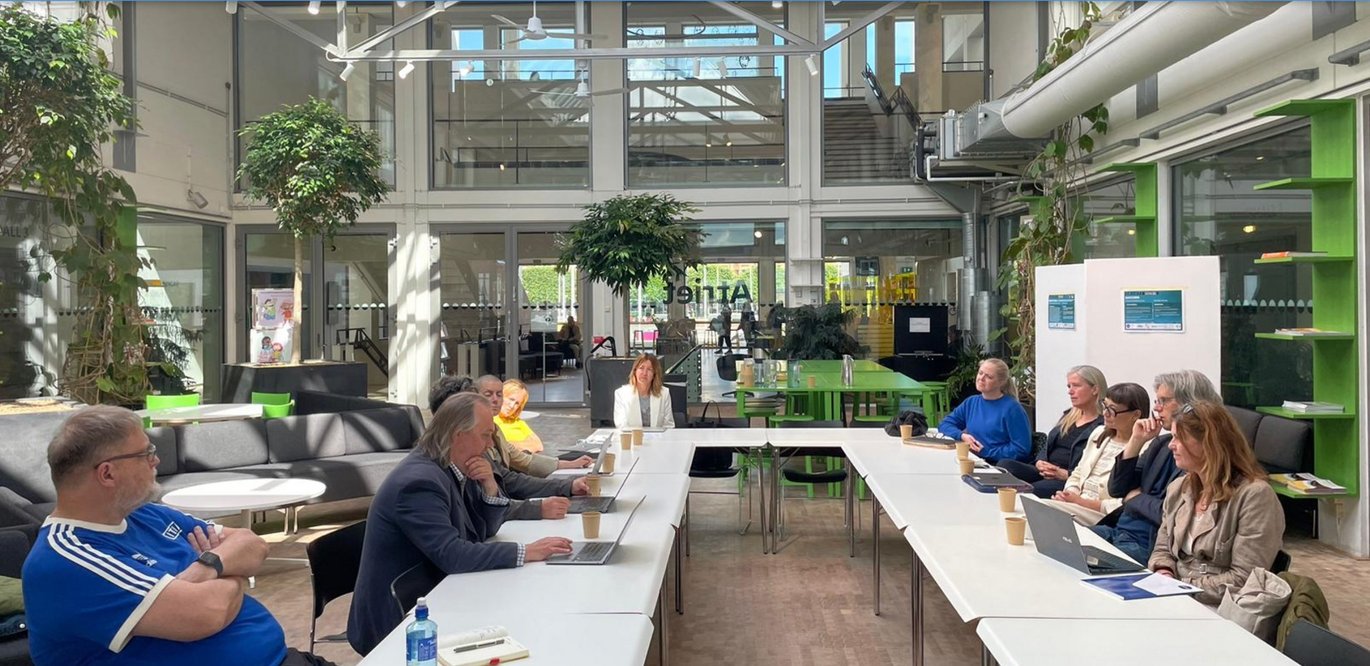European Creative Economy Conference 2024
Fostering collaboration across the European cultural and creative industries

#ECEC, the European Conference on Creative Economy and Culture, is a collaborative event that brings together researchers, creative professionals, and public administrators to discuss challenges in territorial creative ecosystems. The conference explores the significant impact of European creatives on local economies and territories. It focuses on addressing the environmental, digital, and societal transitions within the creative industries.
This year on 12 and 13 June, the Dunkers Kulturhus in the Swedish city of Helsingborg, became the hub for creative thinkers: European Creative Economy Conference 2024 focused on Creative Placemaking and included a pre-conference Creatives For Europe. The agenda included workshops, presentations, and discussions on topics such as skills partnerships, local ecosystem partnerships, and European perspectives for digital and green transition. Key speakers from various sectors shared their insights and experiences.
FOSTERING COLLABORATION AT THE COLLECTIVE INTELLIGENCE WORKSHOP FOR EU PROJECTS IN HELSINGBORG
Part of the agenda was the Collective Intelligence Workshop for EU-funded projects: Organised by ECBN and CreativeFED, the event brought together a group of partners and coordinators of EU projects aimed at developing cultural and creative industries across Europe. Besides CRAFT-IT4SD, a project coordinated by Aarhus University, diverse EU projects participated: SACCORD, Cyanotypes, PACESETTERS, GreenCCIrcle, Label4Future, AV Growth, and Tracks 4 Crafts.
CRAFT-IT4SD was represented by Marianne Ping Huang and Adriënne Heijnen from Aarhus University. It was highlighted the vital role of sustainable practices in the creative industries and provided valuable insights into how traditional craftsmanship can be adapted to contemporary challenges, thus enriching the collaborative efforts of the workshop.
The primary aim of this workshop was to foster synergies and provide a platform for peer-to-peer learning among the participating projects. The workshop began with a round of presentations, where each project introduced their objectives, key activities, and expected outcomes. This was followed by a discussion around common areas of interest, which encompassed a wide range of topics: skills development, the green, digital, and societal transitions, as democracy, crafts, innovation, and knowledge transmission, among others.
In addition to group discussions, there was dedicated time for bilateral conversations among workshop participants. This provided an opportunity for in-depth discussions on specific opportunities for collaboration among their respective projects, allowing for more targeted and practical exchanges.
By facilitating open discussions, interactive sessions, and collaborative activities, the workshop sought to enhance the collective intelligence of the group, enabling participants to share best practices, innovative ideas, and strategic insights to strengthen the impact and sustainability of their respective initiatives. The participants valued this first workshop as a valuable opportunity to connect and expressed strong interest in establishing a roadmap for future meetings and continuous exchange, aiming to build a more cohesive and collaborative network within the cultural and creative industries sector.
For those who could not attend the event: You can find the conference recording online.
